Remembering Sierra Leone
Madison’s first Peace Corps volunteer shares her story
Nation and World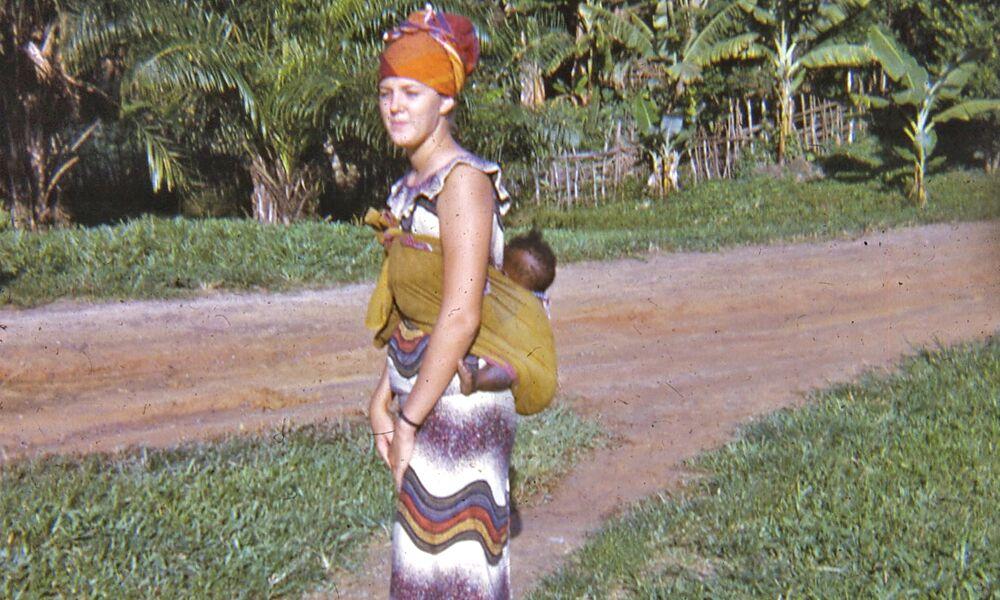
SUMMARY: JMU is currently ranked No. 20 on the Peace Corps' list of top volunteer-producing schools, with 42 alumni currently volunteering globally. Madison's first Peace Corps volunteer, Louise Schullery Cox (’67), served as a teacher in Sierra Leone from 1967 to 1969. She shares her story.
By Louise Schullery Cox (’67)
When the Peace Corps was first established under President John F. Kennedy, I was hooked. A friend’s cousin was in the first PC group in Peru. Her mom would read his letters to us.
When I was a freshman at JMU (Madison College then), JFK was assassinated. On that day, walking back from Wilson Hall, I vowed I would enter the Peace Corps after graduation. I wanted to make the world a better place. Little did I realize then, the world would make me a better person in myriad ways.
My assignment in 1967 was teaching in a primary school in a very rural village in the eastern part of Sierra Leone near Guinea. I wasn’t exactly sure where Salone—as Sierra Leone is informally known—was. Sierra Leone had been a British colony until 1961, when she gained her independence. As a new country, she needed teachers.
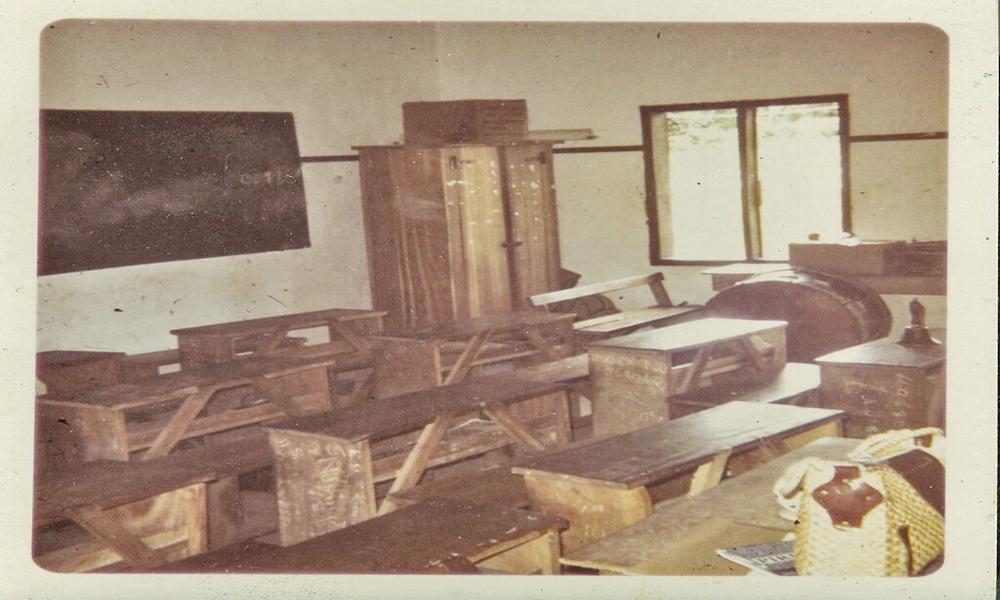
The few textbooks I had were thin paperbacks and talked about Big Ben, Parliament and London! (I learned with my students). There was no public education. Thus, more boys attended than girls. The school had no electricity. When it rained really hard, the shutters were closed and we sat in the dark. Students shared benches. There was a blackboard and chalk. Students had copy books in which all written assignments were kept. Students were extremely respectful. I had to create all my materials and curriculum.
Mail arrived at least once a month. The capital city was 300 miles away. Often, the way I made the long journey there was in a huge lorry or truck sitting on a bench or on bags of rice. I would go to the national post office and sign up for a time to use the telephone there—to call home once a year.
My first year, I was the only Westerner for miles. I would take a lorry to the river, cross in a canoe or by ferry and take another vehicle to buy supplies and to visit other PCVs. I lived simply, visited with village neighbors and was easily accepted as part of the community. My heart opened in unimaginable ways.
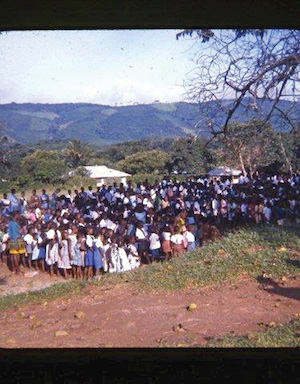 I have so many memories. I loved to watch the Fulani herdsmen bring their cattle home in the evening with the white egrets on their backs, pecking for insects. I miss the relationships with mothers and children. I invited each teacher of my school and his wives (if he had more than one) for dinner. I saw a red-hooded cobra in the garden and was mesmerized by its beauty. I recall going through tall elephant grass and cooking stew in a large pot in the bush for the school picnic. I remember crossing the Baffi River during a flood in a canoe just like one I saw in the Smithsonian. I’ll always remember the gentleness of Sierra Leoneans, their big hearts, always willing to share whatever they had.
I have so many memories. I loved to watch the Fulani herdsmen bring their cattle home in the evening with the white egrets on their backs, pecking for insects. I miss the relationships with mothers and children. I invited each teacher of my school and his wives (if he had more than one) for dinner. I saw a red-hooded cobra in the garden and was mesmerized by its beauty. I recall going through tall elephant grass and cooking stew in a large pot in the bush for the school picnic. I remember crossing the Baffi River during a flood in a canoe just like one I saw in the Smithsonian. I’ll always remember the gentleness of Sierra Leoneans, their big hearts, always willing to share whatever they had.
During my first Christmas in warm weather, everyone was so happy on Christmas Day. The people had no gifts, but they had the joy of the holiday. I miss it all, especially the ease in which Christians, Muslims and Animists lived peacefully! I still carry a part of Africa in my heart.
Sometimes women would ask me to hold their babies because I was white, thinking I would bring good luck. Other times I was the “boogie man” because I was white, that I would “get” the children if they were bad. Women covered their faces and skin with a white paste to mourn when someone died. At this time, I was the first “white” person many had ever seen. I felt completely safe.
|
'I became a global citizen and had the privilege of seeing my country from the outside, which was a true gift.' |
I cooked all meals on a kerosene stove with two burners and used a box oven, becoming quite proficient. My fridge was fueled by kerosene and did quite well. At one time, it stored smallpox vaccination medication for the United Nations!
BBC was my salvation on my transistor radio. It was there I learned of Martin Luther King Jr.’s and Bobby Kennedy’s assassinations.
I thrived as a Peace Corps volunteer. I came alive in new ways! At times I was lonely, wanting to share with someone from my culture. However, each evening, students would come to visit and talk with me. I was under everyone’s protective eye. Village women would come to me for help with their ailments.
My second year, I taught in a larger town with a secondary school. There were a few other PCVs there as well as Canadian volunteers.
I am in touch with many volunteers to this day because we share such special bonds that cannot be shared with anyone else. I have many friends from other countries as well.
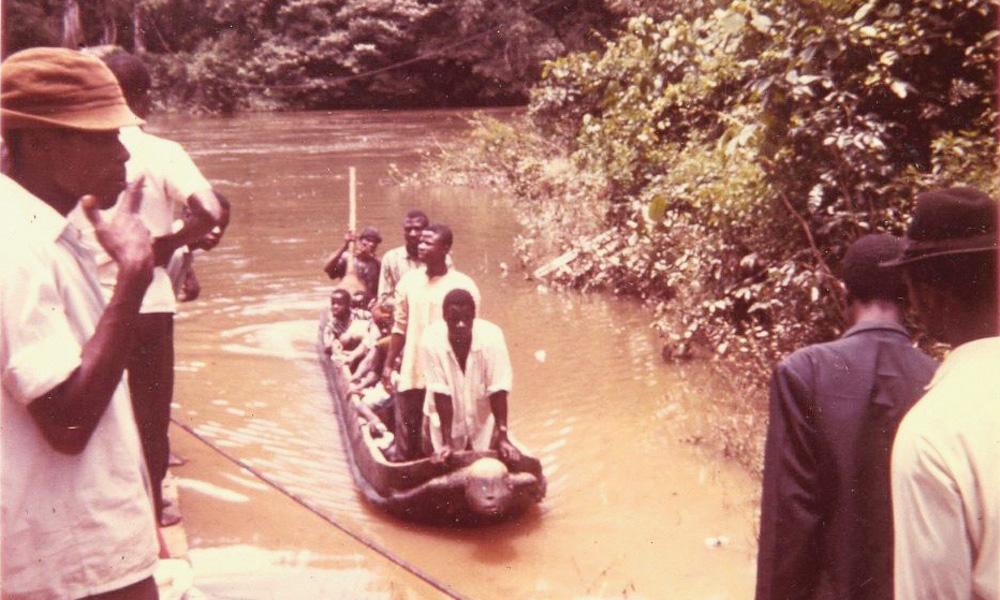
Perhaps something most challenging was returning to the USA and realizing how isolated our country was then (and still is) from knowing or really caring more about the world. International news is much more available outside our country even today. I felt isolated and lonely upon my return. Overseas, I was a global citizen. The people I could share most with in graduate school were international students. They became my close friends.
In the late 1960s, then Madison College had no international students, no people of color. There was little to encourage one’s sights to go beyond Virginia. It was a small world. Neighboring counties closed their public schools (Prince Edward) rather than integrate. This topic was not addressed in education classes at Madison. That is why I am so excited to see the growing body of international students as well as Peace Corps Prep. What exciting learning opportunities are now offered for JMU students to access the world in these special ways! How absolutely wonderful to have Peace Corps Prep offered as an option to consider.
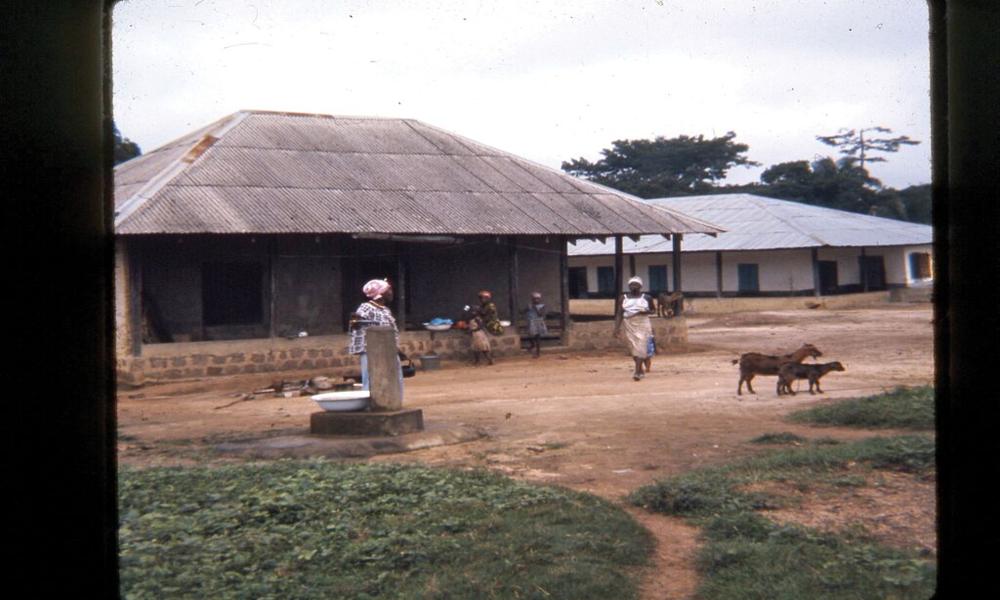
I became a global citizen and had the privilege of seeing my country from the outside, which was a true gift. I have seen how people are much more alike than different. This is not only vital and crucial. In my opinion, all politicians need to have lived, not just visited, outside the USA. I realize how isolated the general public is from international news. The world knows a great deal and cares about us; we need to do the same. I believe I am a more sensitive teacher and citizen after having traveled internationally. Currently, I enjoy teaching English as a second language part time in my retirement.
Being a Peace Corps volunteer is the toughest job you will ever love! You will find yourself stretched in unimaginable ways and you will grow. You will learn about yourself and the world in ways not possible otherwise. You may find yourself closer to humanity than you ever imagined. The world’s future depends a great deal on sensitivity. You will return more resourceful and appreciative for what we have and may well find yourself more creative than you thought possible.
The Peace Corps opened my eyes to the true beauty that exists in this world. The people I lived with did not have much money and most did not have running water. But that did not stop them from enjoying the simple pleasures in life—sharing drinks with friends, swapping town gossip with one another or enjoying a nice barbecue on special occasions.
I have plenty of advice to offer prospective Peace Corps volunteers, but in the interest of time, I will simply say this: When you get a chance, find a quiet place, close your eyes and let your heart guide your imagination. There is so much good in this world and it far outweighs the bad. If you believe in your heart that you can positively effect change in this world and want to grow yourself, then please consider doing so.

